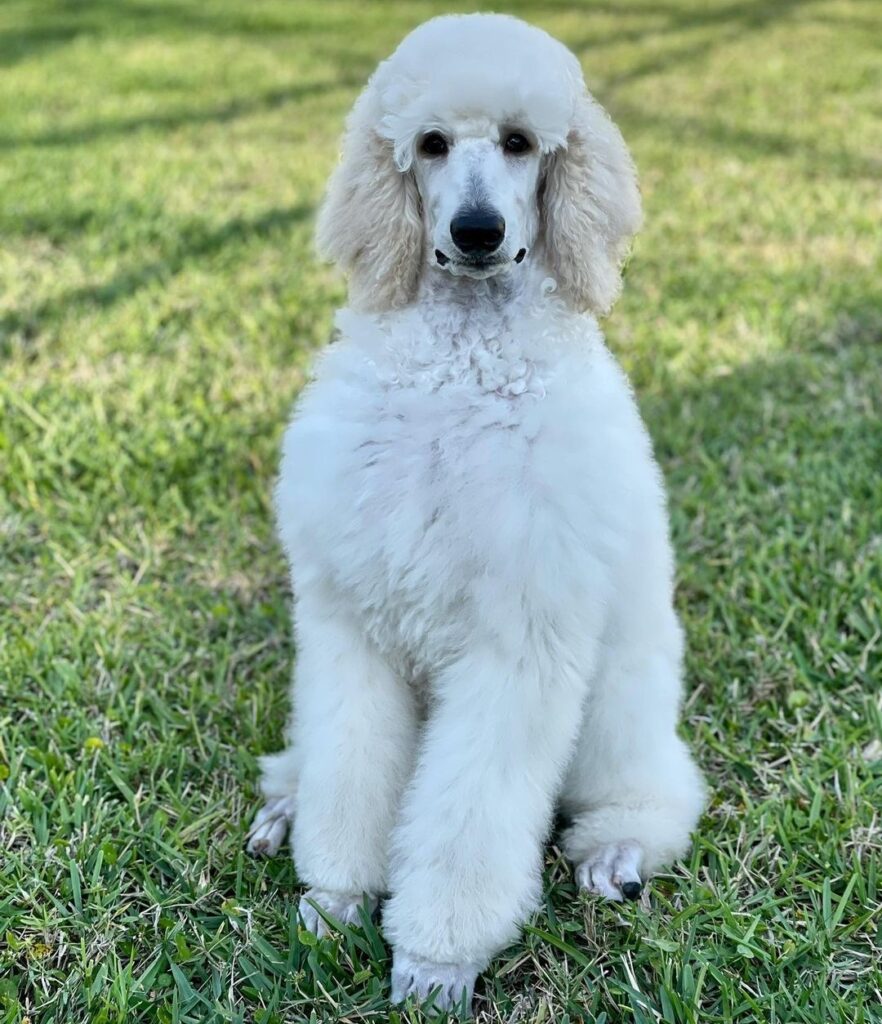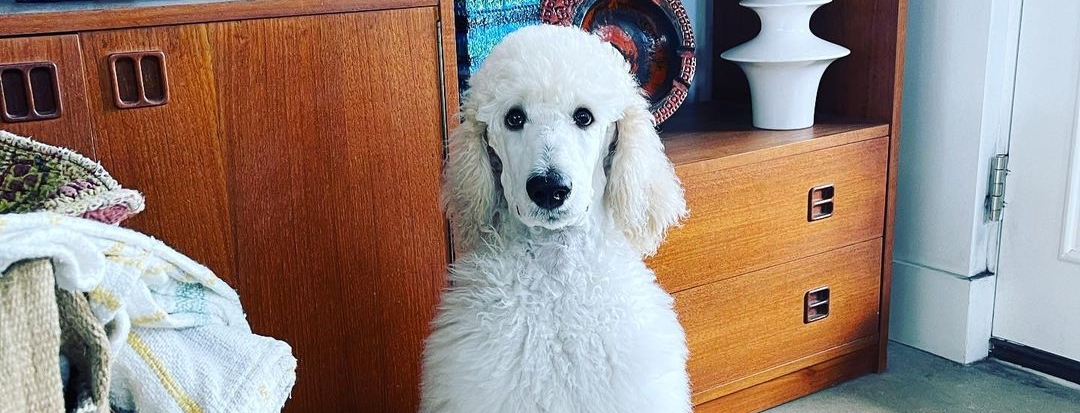White poodles are a popular breed of dog known for their fluffy and curly coats. However, many owners wonder if their white poodles will change color over time. This is a common question among poodle owners, and the answer is not always straightforward.
While some poodle puppies are born with a mutation on a gene that causes them to begin turning grey or white silver at three months old, not all white poodles will change color. Some poodles may fade into a different color as they mature, but this varies by color and by the heritage of the dog.
In this article, we will explain the topic of white poodle color changes in more depth. We will look at the causes of color changes, what colors poodles can fade into, and whether or not all white poodles will change color over time.
Do White Poodles Change Color?
White Poodles can have either a warm or cold tint, but they will always look pure white. However, some white poodles may change their color as they grow. Poodle fading in color, or changing color, is common with this breed and is observed in all poodle colors to some extent.
The Aging Process
Poodle hair turning white is sometimes a result of advanced aging, but not always. Some poodle puppies are born with a mutation on a gene that causes a dog born black or brown to begin to turn grey or a white silver at three months old. These dogs are usually completely white, silver, or grey by maturity.
The Impact of Health Issues
Health issues can also affect the coat color of white poodles. For example, a dog with a thyroid problem may experience a change in coat color. Not only that but exposure to certain chemicals or toxins can cause a dog’s coat to change color.

Read More About: Do All Poodles Fade in Color
The Genetics of Poodle Coat Color
The Role of Melanin
Melanin is a pigment that determines the color of a Poodle’s coat. The more melanin a Poodle has, the darker its coat will be. The amount of melanin produced is determined by a dog’s genes. Eumelanin is the type of melanin that produces black and brown coats in Poodles. Pheomelanin produces red and cream coats. White Poodles have little to no melanin in their coats, which is why they appear white.
The Inheritance of Coat Color
Each Poodle puppy receives one color gene from each parent. The coat color you see in your dog will be the result of the dominant gene. For a recessive coat color to be displayed, no dominant coat color gene should be present. The inheritance of coat color in Poodles is complex, and there are many genes that affect coat color.
The most important genes are the B (brown) and E (extension) genes. The B gene determines whether a Poodle will have a black or brown coat. The E gene determines whether the melanin will be distributed throughout the coat or only in certain areas. If a Poodle has a dominant B gene, it will have a black coat. If it has a recessive b gene, it will have a brown coat. If a Poodle has a dominant E gene, it will have a solid coat color. If it has a recessive e gene, it will have a coat with patches of color.
White Poodles can have either a warm or a cold tint, but they’ll always look pure white. Many are born with beige- or apricot-tinted ears, but this is accepted by the breed standard. They can have black points on their coats, but not black spots or anything that makes them appear dirty. Also, they have black noses and dark eyes.
Read: Teacup Poodle
Conclusion
While white poodles can change color, it is not always a cause for concern. Some changes are simply due to the aging process or genetics, while others may be a sign of a health issue. It is important to monitor any changes in your dog’s coat color and consult with a veterinarian if you have any concerns.
White poodles are a fascinating breed with a unique coat color that many people find appealing. While many white poodles retain their white coat throughout their lives, some may change colors as they age. This color change is a natural process that occurs as the hormones in the dog’s body begin to slow down and change as they get older.

